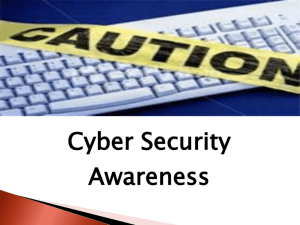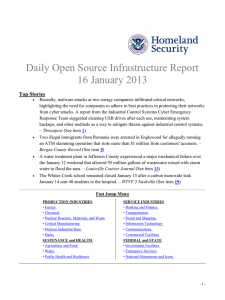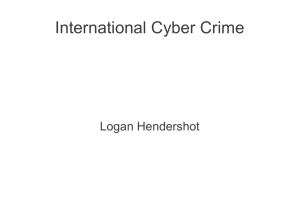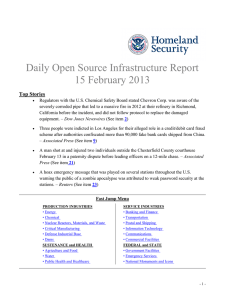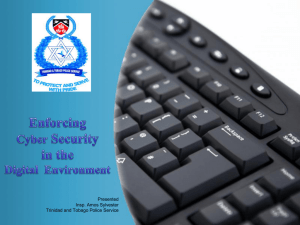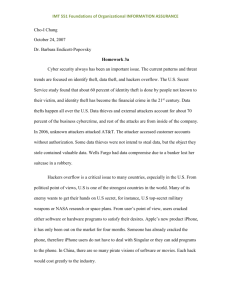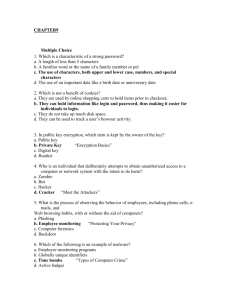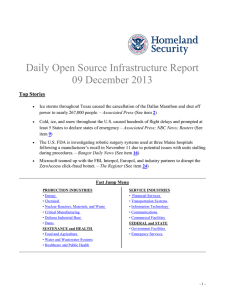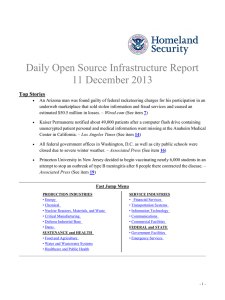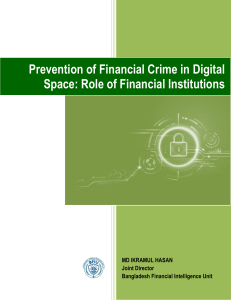Document 11864431
advertisement
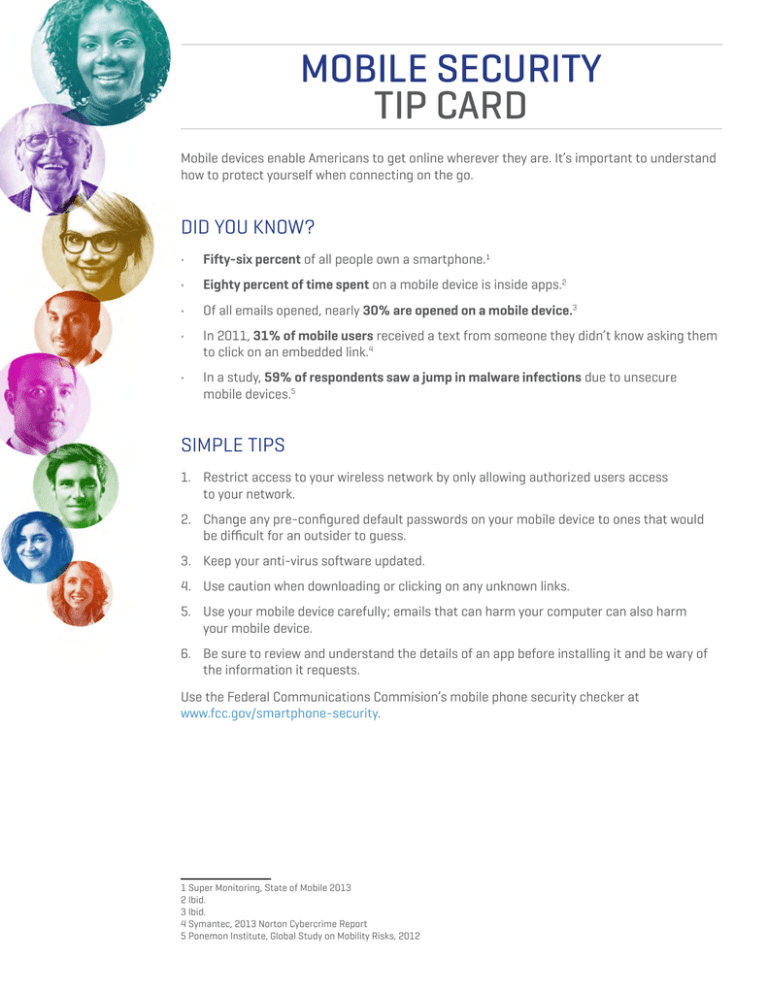
Mobile Security tip card Mobile devices enable Americans to get online wherever they are. It’s important to understand how to protect yourself when connecting on the go. DID YOU KNOW? • Fifty-six percent of all people own a smartphone.1 • Eighty percent of time spent on a mobile device is inside apps.2 • Of all emails opened, nearly 30% are opened on a mobile device.3 • In 2011, 31% of mobile users received a text from someone they didn’t know asking them to click on an embedded link.4 • In a study, 59% of respondents saw a jump in malware infections due to unsecure mobile devices.5 SIMPLE TIPS 1. Restrict access to your wireless network by only allowing authorized users access to your network. 2. Change any pre-configured default passwords on your mobile device to ones that would be difficult for an outsider to guess. 3. Keep your anti-virus software updated. 4. Use caution when downloading or clicking on any unknown links. 5. Use your mobile device carefully; emails that can harm your computer can also harm your mobile device. 6. Be sure to review and understand the details of an app before installing it and be wary of the information it requests. Use the Federal Communications Commision’s mobile phone security checker at www.fcc.gov/smartphone-security. 1 Super Monitoring, State of Mobile 2013 2 Ibid. 3 Ibid. 4 Symantec, 2013 Norton Cybercrime Report 5 Ponemon Institute, Global Study on Mobility Risks, 2012 MOBILE SECURITY TIP CARD RESOURCES AVAILABLE TO YOU US-CERT.gov US-CERT provides tips for both individuals and organizations on how to protect against cyber threats. Visit www.us-cert.gov/cas/tips/ for more information. Justice.gov The Department of Justice Computer Crime and Intellectual Property Section tells you where to report hacking, password trafficking, spam, child exploitation and other Internet harassment. Visit www.justice.gov/criminal/cybercrime/ for more information. OnGuardOnline.gov This website, run by the Federal Trade Commission, is a one-stop shop for online safety resources available to individuals of all ages. StaySafeOnline.org The National Cyber Security Alliance offers instruction on security updates, free anti-virus software, malware software removal and other services. IF YOU ARE A VICTIM OF ONLINE CRIME • Immediately notify your local authorities and file a complaint with the Internet Crime Complaint Center at www.ic3.gov. • If you think a site has collected your personal information in a way that violates the law, report it to the FTC at www.ftc.gov/complaint. • If someone has had inappropriate contact with you or a colleague, report it to www.cybertipline.com and they will coordinate with the FBI and local authorities. Stop.Think.Connect.TM is a national public awareness campaign aimed at empowering the American public to be safer and more secure online. The Campaign’s main objective is to help you become more aware of growing cyber threats and arm you with the tools to protect yourself, your family and your community. For more information visit www.dhs.gov/stopthinkconnect. www.dhs.gov/stopthinkconnect
